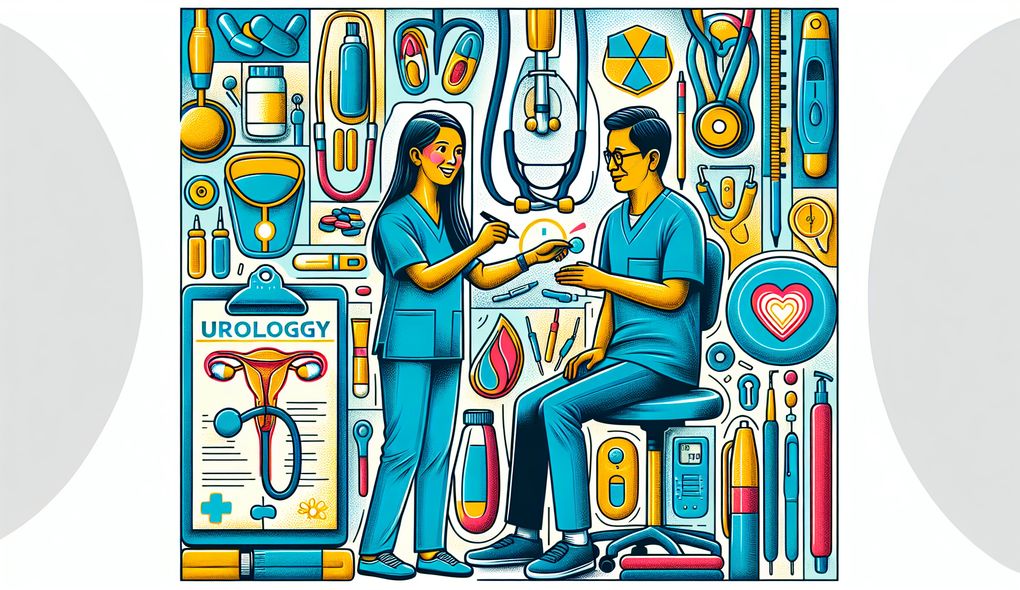What are your responsibilities when conducting patient assessments?
INTERMEDIATE LEVEL

Sample answer to the question:
When conducting patient assessments, my responsibilities include taking medical histories, performing physical examinations, and ordering diagnostic tests. I also develop treatment plans for patients with urological conditions, prescribe medications, and perform minor urological procedures. Additionally, I collaborate with other medical professionals to coordinate patient care, educate patients and their families on urological health, and manage follow-up care.
Here is a more solid answer:
When conducting patient assessments, I start by taking detailed and comprehensive medical histories, ensuring that I gather all relevant information about the patient's urological health, past medical history, and current symptoms. I then perform thorough physical examinations, paying close attention to the abdomen, pelvis, and genitourinary system. During these examinations, I look for signs of abnormalities, such as masses, tenderness, or swelling. I also order and interpret diagnostic tests, such as urinalysis and bladder scans, to further assess the patient's urological health. Based on the findings, I develop individualized treatment plans that may include medication prescriptions, lifestyle modifications, or referral for further specialized care. In some cases, I perform minor urological procedures, such as catheterizations, bladder washouts, and the insertion of urological devices. Collaboration is crucial in my role, and I work closely with urologists, surgeons, and other members of the healthcare team to ensure cohesive and effective patient care. Patient education is another important aspect of my responsibilities, and I take the time to explain the diagnosis, treatment options, and self-care measures to patients and their families. Additionally, I provide thorough follow-up care, ensuring that patients receive the necessary post-assessment support and monitoring their progress.
Why is this a more solid answer?
The solid answer provides specific details and examples of the candidate's responsibilities when conducting patient assessments. It demonstrates their knowledge and expertise in urology nursing and showcases their ability to collaborate effectively and provide comprehensive care. However, it could be further improved by including more specific examples of the candidate's experience and achievements in each area of responsibility.
An example of a exceptional answer:
When conducting patient assessments, I take a patient-centered approach, ensuring that I create a comfortable and supportive environment where patients feel heard and valued. I actively listen to their concerns, address any anxieties they may have, and provide personalized care that meets their unique needs. To gather thorough medical histories, I utilize open-ended questioning techniques that allow patients to share relevant information in their own words. This not only helps in diagnosing urological conditions but also contributes to building trust and rapport with patients. When performing physical examinations, I pay meticulous attention to detail, using advanced assessment skills to identify subtle abnormalities or changes in the patient's condition. I am proficient in the latest diagnostic tools and procedures, using them to accurately interpret test results and make informed treatment decisions. In developing treatment plans, I take a holistic approach, considering not only the patient's urological health but also their overall well-being. I collaborate closely with urologists, surgeons, and other healthcare professionals, actively participating in interdisciplinary meetings and contributing valuable insights to ensure comprehensive and integrated care. Patient education is a priority for me, and I provide clear and concise explanations, using visual aids and simplified language to enhance understanding. I also empower patients to actively participate in their care by encouraging questions and providing resources for further information. Finally, I prioritize follow-up care, ensuring that patients have access to timely and appropriate post-assessment support, and I proactively reach out to address any concerns or complications that may arise. By consistently delivering exceptional patient assessments, I aim to provide the highest standard of care and improve outcomes for urology patients.
Why is this an exceptional answer?
The exceptional answer goes above and beyond in demonstrating the candidate's expertise and dedication when conducting patient assessments. It highlights their patient-centered approach, advanced assessment skills, and commitment to holistic care. The answer also emphasizes their strong collaboration and communication skills, as well as their proactive approach to patient education and follow-up care. The candidate's focus on building trust, empowering patients, and continuously striving for excellence sets them apart from other candidates. However, to further improve the answer, the candidate could provide specific examples of their exceptional performance in each responsibility.
How to prepare for this question:
- Study and review the common urological conditions and their associated symptoms, diagnostic tests, and treatment options.
- Prepare examples from your previous experience where you have successfully conducted comprehensive patient assessments in urology nursing.
- Familiarize yourself with the latest advancements and research in urology nursing to demonstrate your commitment to ongoing professional development.
- Practice active listening and effective communication skills to enhance patient interactions during assessments.
- Stay updated with the current guidelines and best practices in urology nursing, including medication prescribing and minor urological procedures.
What are interviewers evaluating with this question?
- Patient assessments
- Medical history
- Physical examinations
- Diagnostic tests
- Treatment plans
- Medication prescribing
- Minor urological procedures
- Collaboration
- Patient education
- Follow-up care

